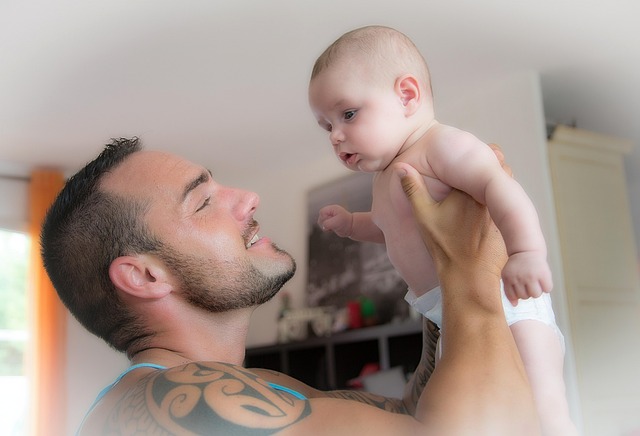Lesbian couple surrogacy faces global legal variations, with some countries explicitly legalizing it while others lack direct addressing, creating complexities. Navigating parental rights requires expert legal counsel to protect all parties' interests and emotions. Open communication and counseling strengthen bonds, and specialized legal professionals guide through processes like pre-birth agreements and adoption procedures to ensure smooth journeys and equal legal treatment.
“In the realm of modern family formation, lesbian couple surrogacy has emerged as a powerful option. This path, however, navigates complex legal and emotional territories. Understanding the intricate web of parental rights is paramount for ensuring stability and happiness for all involved. From the legal framework governing lesbian surrogacy to the ethical dilemmas and practical steps required to secure parental status, this article delves into the essential considerations for navigating same-sex surrogacy successfully.”
Understanding Legal Framework for Lesbian Couple Surrogacy
The legal framework surrounding lesbian couple surrogacy varies significantly across jurisdictions, reflecting the diversity of societal attitudes and legislative approaches to family formation. In many countries, same-sex relationships are recognized legally, which can provide a solid foundation for establishing parental rights in surrogacy arrangements. For lesbian couples considering surrogacy, understanding the specific laws is paramount. This includes clarity on issues like legal parenthood, custody rights, and obligations of all parties involved.
Each country’s legal system offers unique insights into navigating parental rights. Some jurisdictions have explicitly legalized surrogacy for same-sex couples, outlining detailed procedures for ensuring equitable and legally sound arrangements. Conversely, other regions might not directly address lesbian couple surrogacy, leaving room for interpretation and potential complexities in establishing parental status. Therefore, seeking expert legal counsel is crucial to ensure that the rights of all involved are protected within the evolving landscape of surrogate parenting laws.
Ethical Considerations and Parental Rights
When a lesbian couple turns to surrogacy, navigating parental rights becomes a complex web of ethical considerations. The process raises questions about biological connection, legal standing, and the best interests of the child. As society evolves and acceptance grows, so do expectations for equal treatment under the law. This is particularly important in same-sex surrogacy arrangements, where clear agreements and legal frameworks are essential to protect the rights of all parties involved, ensuring a stable and loving environment for the child.
In lesbian surrogacy, both the biological and gestational mothers play distinct roles, each with their own unique connections to the child. Ethical considerations demand that these relationships be respected and legally recognized. The law must address how parental rights are determined, transferred, or shared, especially in cases where a couple decides to co-parent with the surrogate or another family member. This delicate balance ensures that every individual involved—the lesbian couple, the surrogate, and the child—has their rights and interests acknowledged and protected throughout the surrogacy journey.
Navigating Emotional Dynamics in Same-Sex Surrogacy
Navigating emotional dynamics within same-sex surrogacy involves unique considerations for lesbian couples. The process can evoke a complex mix of feelings, from profound joy and anticipation to anxiety and vulnerability. Both partners may experience a range of emotions as they journey towards parenthood, especially when relying on a surrogate to carry their child. Open communication is vital; discussing expectations, fears, and roles within the family-building process can strengthen their bond and foster a supportive environment.
Understanding each other’s perspectives and providing emotional support to one another are essential. Lesbian couples should create safe spaces to express their feelings, whether through counseling sessions or private conversations. This open dialogue ensures that both partners feel heard, understood, and respected throughout the surrogacy journey, ultimately contributing to a healthier and more harmonious family dynamic.
Practical Steps to Secure Parental Rights Legally
Securing parental rights legally in same-sex surrogacy is a crucial step for any lesbian couple embarking on this journey. The first practical step is to consult with experienced legal professionals who specialize in family law and LGBTQ+ issues. They can guide you through the complex process, ensuring all necessary documents are in place to establish parental rights from the outset. This includes preparing pre-birth agreements, which outline the expectations and responsibilities of all parties involved, including the surrogate mother and intended parents.
Additionally, it’s essential to familiarize yourself with the legal framework governing surrogacy in your jurisdiction. Each country and state has its own set of regulations, and understanding these is vital to protect your rights as a lesbian couple. Consider filing for parental recognition or adoption proceedings once the child is born, ensuring that both parents are legally recognized on the birth certificate. Regular communication and collaboration with your legal team will help navigate any challenges and ensure a smooth process.
Navigating parental rights in lesbian couple surrogacy requires a delicate balance of legal expertise, ethical considerations, and emotional understanding. By comprehending the unique challenges within each aspect—from the legal framework to the complex emotions involved—couples can ensure a robust legal foundation for their familial future. Implementing practical steps to secure parental rights is paramount, allowing them to focus on raising their children with love and stability. In the context of lesbian couple surrogacy, informed decision-making and advocacy are key to creating a harmonious family unit.
